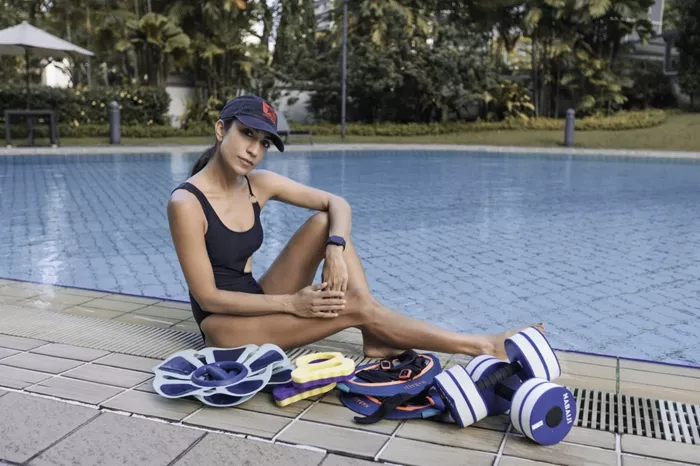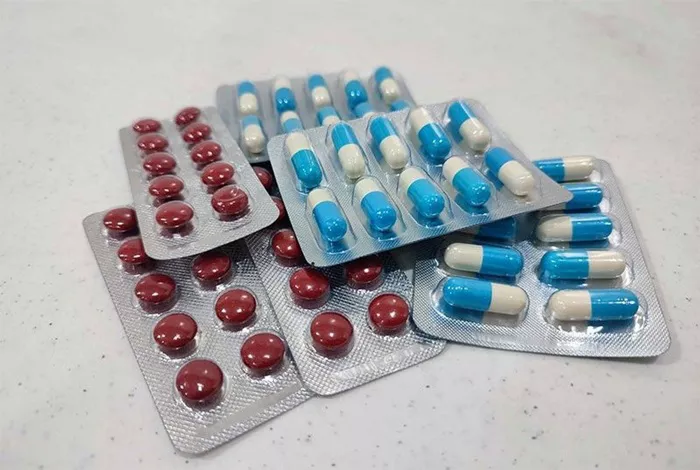For Malissa Sander, aqua fitness is more than just exercise; it has been a lifeline during some of her darkest times.
Born in Sri Lanka, Sander, 44, had a traumatic childhood. Between ages three and nine, she witnessed numerous atrocities during the civil war that began in 1983. Her home was also a place of fear, with an alcoholic father and a mother in denial about the family’s problems.
At nine, Sander’s family relocated to Singapore. By 13, she developed an eating disorder, using food control to cope with emotional trauma. She also focused on her studies and dancing. However, by 17, her restrictive eating caused severe health issues, including fatigue and osteopenia—a precursor to osteoporosis.
Sander moved to the United States for university, but a torn ankle tendon from running prevented her from exercising, worsening her eating disorder. “That’s when I hit rock bottom. My body totally fell apart,” she recalls. Diagnosed with anorexia nervosa in 1999, she began her journey to recovery.
In 2000, on a chiropractor’s recommendation, Sander tried aqua fitness. The hour-long session brought her joy and a sense of safety, allowing her to exercise without fear of injury. In 2001, she moved to Sydney, Australia, to recover in a specialized hospital. Aqua fitness, combined with strength training, helped her regain strength and confidence.
“The underwater movements were simple and gentle. They helped me regain my strength, slowly and steadily,” she says. With the support of a physical therapist, Sander relearned to walk and move without fear of fractures. She also developed healthy eating habits and began exercising in her apartment pool, despite a slow and lonely recovery process.
Sander spent the next decade in various Asian cities, including Bangkok and Hong Kong, where she met her husband. She briefly worked in real estate and at an art gallery but found her true calling in fitness. She earned several certifications, including an Aqua Instructor International Certification from the Federation of International Sports, Aerobics and Fitness (FISAF).
In 2017, after the birth of her second child, Sander faced postnatal depression and physical pain from a C-section. Knowing exercise would help, she returned to the pool after six weeks and began to recover. During this time, she developed the Aqua Tula method for general, prenatal, and postnatal fitness. Tula, meaning balance in Sanskrit, reflects her journey from extreme living to moderation.
In 2019, Sander started teaching Aqua Tula in Singapore. She tailored the exercises to suit various needs, incorporating HIIT, cardio, strength training, Pilates, and yoga using equipment like pool noodles, boxing mitts, aquatic foam dumbbells, and space shoes. Her dance background helped her create unique workouts not seen before in aqua fitness.
Aqua Tula is suitable for everyone, from those with post-partum depression or injuries to people with disabilities or those who are overweight. “I’ve seen many lives transformed through aqua fitness. Moving in the water can have a unique therapeutic effect,” she says.
Aqua fitness has profoundly impacted Sander’s life, improving her cardiovascular health, flexibility, mobility, core strength, and confidence. She participates in her classes daily, lifts weights, and walks outdoors weekly, emphasizing the connection between movement and mental health.
“Fitness, particularly aqua fitness, has saved my life countless times,” she says. “When a person has experienced the extent of trauma that I have, the fear, pain, and anxiety tend to linger. I’m usually in the pool within the first three hours of my day, and from the second I start moving in the water, I can feel the fear, pain, and anxiety dissipate.”
Sander’s journey highlights the transformative power of aqua fitness. “By exercising in a way that is safe and pain-free, and by moving for my mind, I’ve reclaimed my sense of self and my power,” she concludes.
[inline_related_posts title=”You Might Be Interested In” title_align=”left” style=”list” number=”6″ align=”none” ids=”10188,10172,10169″ by=”categories” orderby=”rand” order=”DESC” hide_thumb=”no” thumb_right=”no” views=”no” date=”yes” grid_columns=”2″ post_type=”” tax=””]


































